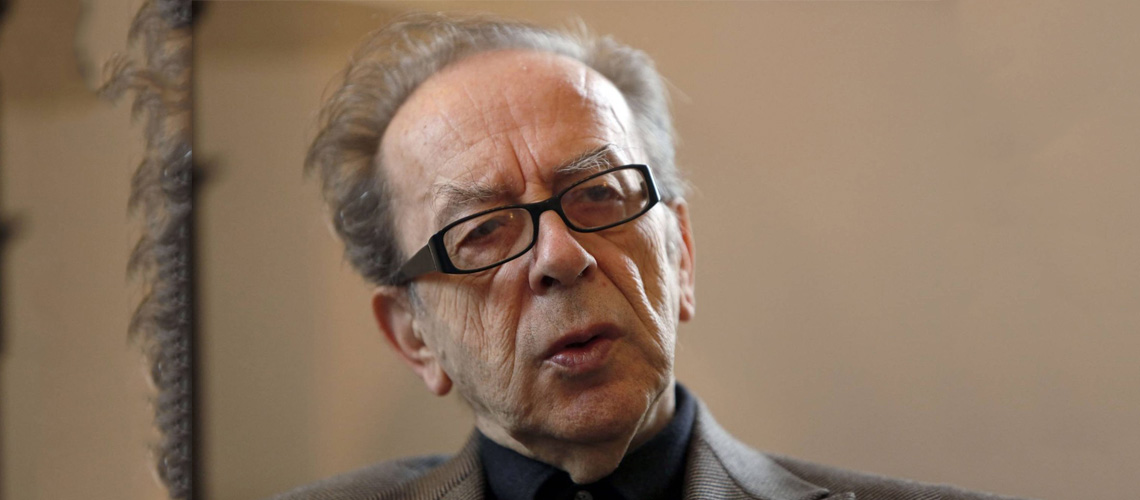Albanian novelist and poet Ismail Kadare died of a heart attack in Tirana, the capital of Albania, on Monday, July 1, 2024. He was 88. Kadare was one of the most prominent writers close to communist rule in Albania.
Kadare was born on January 28, 1936, in Gjirokastër in the historic mountain city of Gjirocaster, in southern Albania, during the reign of King Zog I. This region, known for its high stone houses, was previously part of the Ottoman Empire. When Kadaré was three years old, Mussolini’s forces invaded Albania, overthrowing the king and establishing Italian rule for six years.
Subsequently, the People’s Socialist Republic of Albania was established under communist leadership. During this period, Kadare attended primary and secondary school in his hometown. He later studied languages and literature at the College of History and Philology at the University of Tirana, earning a teacher’s degree in 1956. He also married Albanian writer Helena Joshi.
Kadare lived in Tirana until 1990 before moving to France. Since 1996, he has been a lifetime member of the French Academy of Political and Moral Sciences. In 2016, he was awarded the French Legion of Honor. In 2019, his apartment in Tirana was converted into a museum showcasing his work and life. Since the 1990s, both of Albania’s main political parties have repeatedly called for him to become the country’s consensus president, but he has consistently declined.
Kadare began his writing career in the mid-1950s as a novelist, poet, and writer of articles and playwright. Initially, he focused on poetry and published several short stories. However, it was the release of his first novel, “The General of the Dead Army” in 1963 that garnered significant attention and earned him international fame. This novel tells the story of an Italian general on a grim mission to recover the remains of his country’s soldiers who died in Albania during World War II and return their remains to Italy.
His subsequent novels include “The Siege” (1970) which delves into Albanian history, narrating the armed resistance of the Albanian people against the Ottoman Turks in the 15th century. Another notable work is “Chronicle in Stone” (1971), inspired by his hometown of Gjirokastra, and “The Great Winter” (1977) which portrays the events leading to the separation between Albania and the Soviet Union.
His novel “Broken April” published in 1980 and originally written in Albanian before being translated into English, stands as one of his most significant works. The novel is a harrowing narrative of the blood feud as laid down in Albania’s ancient code of law. While deeply rooted in Albanian history, the novel primarily explores humancharacteristics, particularly focusing on the concept of “blood feud” or vendettas, approached with an unconventional psychological style that delves into the thoughts and emotions of its characters.
The novel was adapted into a film in 1984 titled “The Uninvited” by Albanian director Kujtim Çashku, while Brazilian director Walter Salles drew inspiration from the same story for his film “Behind the Sun,” although the names of the characters were changed.
In addition to his acclaimed novels, Kadaré has authored numerous other works, including approximately 10 poetry collections compiled into a single volume in 2018. He also published a collection of short stories titled “Short Prose” in the same year. His literary contributions extend to a wide range of literary, intellectual and political articles.
In 2020, most of Kadare’s works, which included more than 80 novels, plays, screenplays, poetry, essays and story collections, were translated into 45 languages, including Arabic language. Among his translated works are “The General of the Dead Army”, “The Three-Arched Bridge”, “The Beast”, “Chronicle in Stone” and “The Palace of Dreams”.
Due to his pioneering literary achievements and remarkable creativity, Kadare has garnered numerous international awards. In 1992, he was awarded the Sino del Duca International Prize for Literature in France. In 1998, he received the Herder Prize in Germany. In 2005, he won the International Booker Prize in literature in Britain. In 2009, he was honored with the Prince of Asturias Prize for Arts in Spain.
He also received the Park Kyung-ni Prize in 2019 in South Korea and the International Neustadt Prize for Literature in 2020 in the United States. Kadare also received the Jerusalem Prize in 2015 and the America Award in Literature for a lifetime contribution to international writing in 2023. Kadare also produced poems, essays and screenplays, and was nominated for the Nobel Prize in Literature 15 times.




